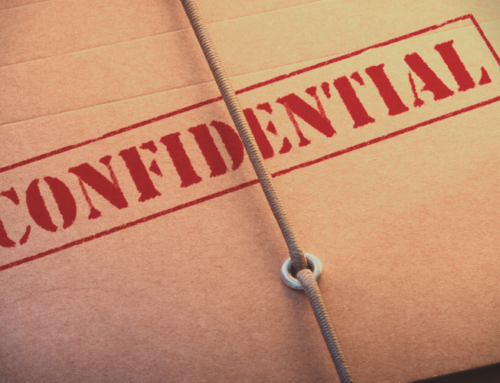Previously in this series, we discussed how to make the defense meet its burden. Part two covered “trade secret” or “proprietary information.” Next we looked at some common terms the defense proposes in their Confidentiality or Protective Orders to gain an unfair strategic advantage and how to expose the prejudice that will result.
In this part, we look at Georgia’s public access laws and how they favor public access to information and documents in civil litigation, which is a good reason why courts should deny defense motions for protective orders. Those public access concerns are not trivial: “In the State of Georgia, the public and the press have traditionally enjoyed a right of access to court records. Public access protects litigants both present and future, because justice faces its gravest threat when courts dispense it secretly.” Atlanta Journal v. Long, 258 Ga. 410, 411, 369 S.E.2d 755 (1988), opinion corrected, 377 S.E.2d 150 (Ga. 1989). “Once a matter is brought before a court for resolution, it is no longer solely the parties’ case, but also the public’s case.” Brown v. Advantage Eng’g, Inc., 960 F.2d 1013, 1016 (11th Cir. 1992).
Background
This policy is in the federal courts’ interpretation and enforcement of Rule 26(c), which governs motions for protective orders and is akin to O.C.G.A. § 9-11-26. Federal Rule 26(c) contemplates that, unless compelling reasons exist for imposing restrictions, all discovery will take place in an open court. See e.g., Public Citizen v. Liggett Group, Inc., 858 F.2d 775, 789 (1st Cir. 1998), Cert. denied, 488 U.S. 1030 (1989). As noted by the Court in AT&T v. Grady, 594 F.2d 594, 596 (7th Cir. 1978), “[a]s a general proposition, pretrial discovery must take place in the public unless compelling reasons exist for denying access to the proceedings.” (See also, Jraszewski v. State Farm, 139 F.R.D. 156, 159, (N.D. Cal. 1991).
When considering the defense’s request for a protective order, the opinion of Judge Easterbrook in Union Oil Company v. Leavell, 220 F.3d 562, 567-68 (7th Cir. 2000), should be considered:
No one would ever dream of saying that every dispute about trade secrets must be litigated in private. Even disputes about claims of national security are litigated in the open. Briefs in the Pentagon Papers case, New York Times v. United States, 403 U.S. 713 (1971), and the hydrogen bomb case, United States v. Progressive, Inc., 467 F.Supp 1990, Reh’g denied, 486 F.Supp.5 (W.D. Wisc.), appeal dismissed, 610 f.2d 818 (7th Cir. 1979), were available to the press… Many a litigant would prefer that the subject of the case…be kept from the curious, including its business rivals and customers, but the tradition that litigation is open to the public is very longstanding… What happens in the halls of government is presumptively public business.
Criticism
Protective orders often come under judicial criticism when they are not supported by an independent showing of good cause. Foltz v. State Farm, 331 F.3d 1122, 1131 (9th Cir. 2003); Proctor & Gamble v. Bankers Trust, 78 F, 3d 219, 227 (6th Cir. 1996); Pansy v. Borough of Stroudsburg, 23 F.3d 772, 786 (3rd Cir. 1994); Aetna Casualty v. George Hyman Construction, 155 F.R.D. 113, 115 (E.D. Pa. 1994). “Allowing the public access to judicial records ‘serves to promote trustworthiness of the judicial process . . . and to provide the public with a more complete understanding of the judicial system, including a better perception of its fairness.” Macias v. Aaron Rents, Inc., 288 Fed.Appx. 913, 916 (5th Cir. 2008) (quoting SEC v. Van Waeyenberghe, 990 F.2d 845, 849 (5th Cir. 1993)).
Because “information contained in court documents ‘often provide[s] important, sometimes the only, bases or explanations for a court’s decision,’” there is a “strong common law presumption in favor of public access to court proceedings and records.” United States v. Raybould, 130 F.Supp.2d 829, 831-33 (N.D.Tex. 2000). Don’t forget this important context when opposing defense motions for protective orders. It is the default position of the law in both Georgia and federal courts with respect to ensuring public access to documents and materials in civil litigation.





